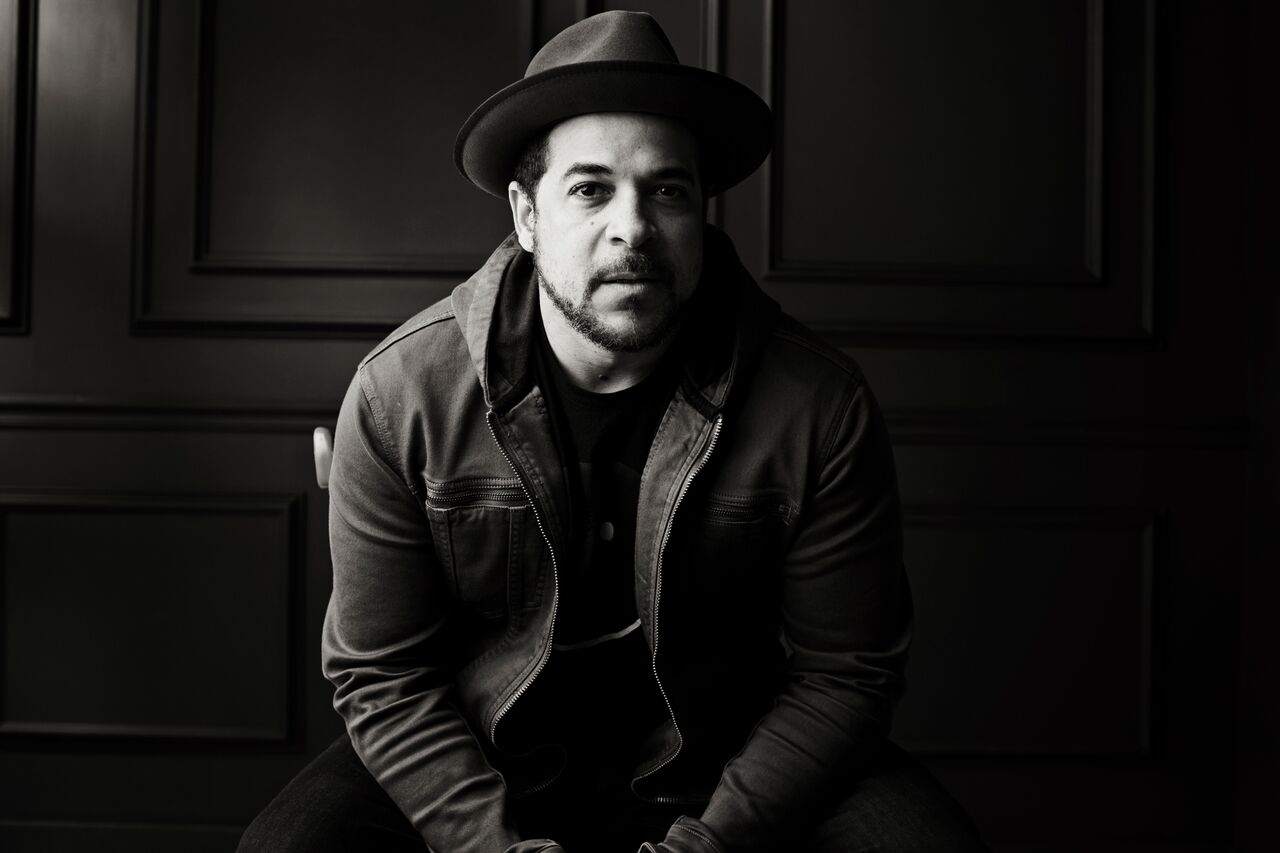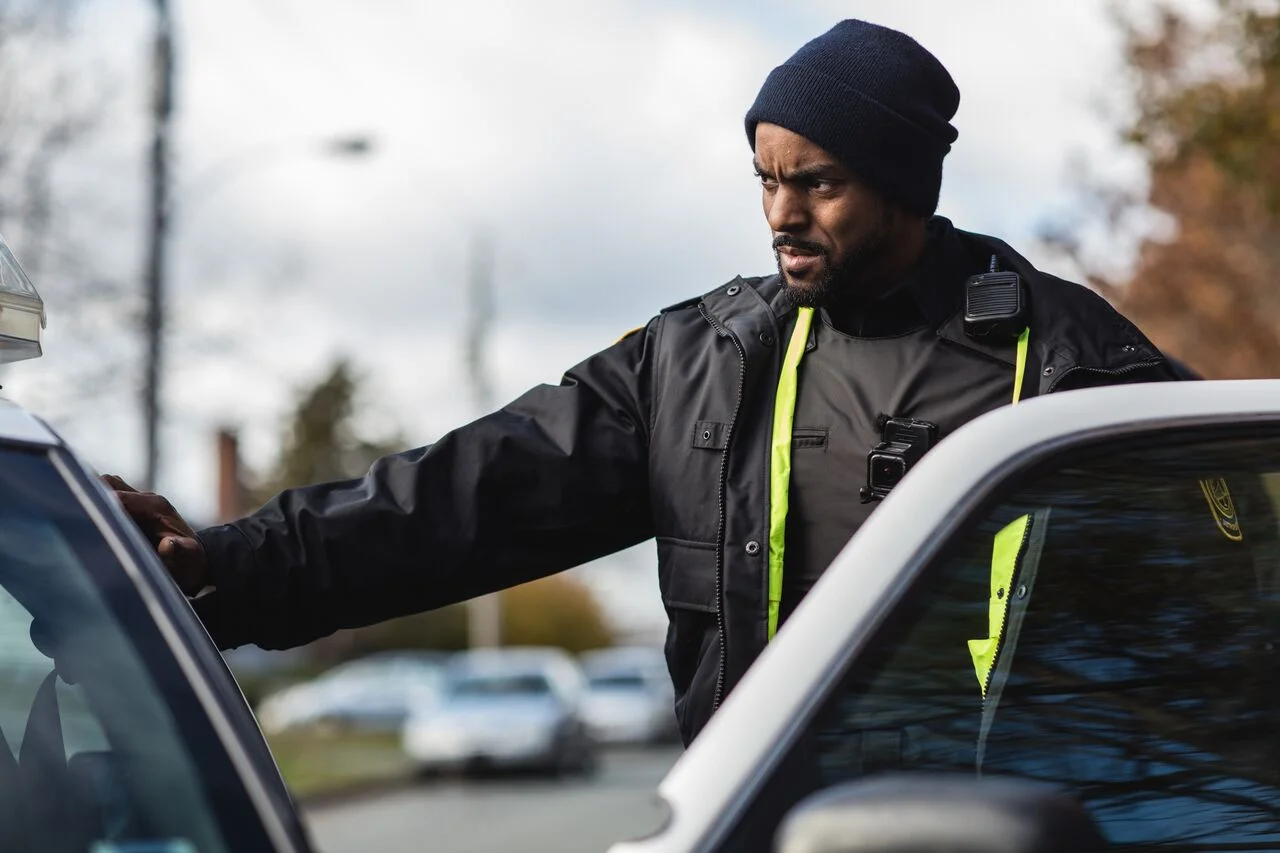Original-Cin Q&A: Trailer Park Boys actor talks about his powerful reverse-racial-profile drama Black Cop
For anybody who needs a reminder that actors aren’t the characters they play, Cory Bowles – one half of Trailer Park Boys’ doofus duo Cory & Trevor – is a director, writer, dancer and teacher at Bishops University.
And his first feature Black Cop, which debuted at the Toronto International Film Festival, is a darkly satirical piece about a person-of-colour in uniform (Ronnie Rowe) who simmers as he abides the tactics of his white colleagues - until the day he’s racially-profiled himself while off duty.
Cory Bowles: From Trailer Park Boys to shoe-on-the-other-foot justice
Then he snaps and begins violently profiling middle-class white people – a pregnant woman in an SUV, a college kid on a bike, a jogging doctor who’s wearing a grey shirt “matching the profile” of a reported suspect in a grey shirt.
The movie is deliberately stage-like in parts, particularly when its chapters are separated by race monologues.
When not teaching, Bowles divides his time between Toronto and Halifax (where he’s directed TPB episodes since 2013). Original-Cin’s Jim Slotek interviewed him about Black Cop.
ORIGINAL-CIN: I understand that this movie was partly inspired by a profiling incident in Halifax, where you called the police to report a disturbance and the police arrived and immediately assumed you were a suspect.
CORY BOWLES: “That’s true.”
OC: There’s a line in one of the monologues about black people being trained to be defensive in these interactions, which is misinterpreted as rudeness or aggression.
BOWLES: “‘I didn’t do anything, don’t shoot.’ I was considered aggressive when I called the officers. They mistook my defensiveness as aggressive. The one officer told me not to move and keep quiet.
“And then, man, I was furious. And my brother was calming me down, ‘Don’t say anything, don’t move, don’t talk.’”
OC: In the scene where the Black Cop (he isn’t give a name) is profiled, some might say that if he showed his badge immediately, the incident wouldn’t have escalated.
Ronnie Rowe is set to profile some white people in Black Cop
BOWLES: “Well, there is that thing about reaching for your pocket. You don’t do that.
“Other people say, ‘Why didn’t he just say he was a cop?’ And he was starting to try to say he was a cop the whole time. But it was like, ‘Don’t talk! Don’t talk!’ That shuts you down after a while, and then it’s like, ‘Okay, I’m not talking to you. You’re not going to get anything out of me.”
“It’s one of those moments in the film where some people say, ‘He could have just said he was a cop,’ and other people say, ‘I know this. I know what it’s like.’”
OC: Were you inspired by a real black cop?
BOWLES: “No. I know some for sure. And I have some family members that are. I don’t know all their experiences, I only know some. And I can tell you many I know are proud of the work they do. And they’ll fight to do a good job.
“At the same time, it’s a made-up character. It was one of those weird instances where I didn’t do a lot of interviews. I read a lot, things like that. But I just said, ‘No, I’m going to put myself in this person’s shoes as much as I can.”
OC: What’s been the response to the movie from black cops – or white cops for that matter?
BOWLES: “It’s been great and it’s been surprising. At a screening in Chicago, there were some officers. Some said they thought I was telling their story. That was cool. Another black officer was right on the opposite end of things, like, ‘Nope, it don’t happen that way. There’s 1% bad eggs.’ I was like, ‘One bad egg is one bad egg.’
“And then officers that weren’t of color told me, ‘Yeah, I see this all the time. In fact, we were presented in Florida by a predominantly black precinct. They put the movie out and used it as an educational tool.
“I didn’t know how I felt about that. I didn’t know it would be embraced like that. You make a piece like this and find out it’s going to be pleasant and shocking and cool and angering all these responses.”
OC: There’s an element of the absurd when you see a white doctor being roughed up by a black cop, like everything’s turned upside down.
BOWLES: “That’s a good point, because it’s always absurd. There’s a sense of humour to those moments, followed by a sense of terror. ‘Someone told me, ‘That’s when I lost all empathy for the character.’ I said, ‘Good. You should lose all empathy for that character at that moment. Because those situations in that movie are taken directly from real-life situations.
“A pregnant woman being slammed down? It’s happened. A man being stopped because he fit the description followed by a beating? That’s happened more than once.
“Some people say, ‘If I were pulled over, I would have done this.’ But you don’t know that. And your situation is entirely different from when someone says, ‘Keep your hands on the wheel!’ instead of, ‘Hi, how are you? You doing okay today?’”
OC: This is light years away from the tone of Trailer Park Boys. But how did that show affect your career, and your decision to go behind the camera?”
BOWLES: “When I was doing that show, I wanted to write movies and short films. I watched (producer/director/writer) Mike Clattenburg quite a bit.
“I’ve been directing Trailer Park Boys since 2013. It’s a hard show to direct and it certainly hones your skills. I was also at CFC (the Canadian Film Centre) before that, and I definitely felt I needed to get more training.
“Trailer Park Boys was a huge part of that. The choreography, the improv of it. There was a camaraderie in the company that was almost a theatre-company feel, that kind of collaboration.”
OC: And what has Black Cop done for your career.
BOWLES: “It’s opened a lot more doors than I expected. I got signed quite quickly to a U.S. agent. Quite a good agency and that’s changed a lot. All of a sudden, things you thought weren’t there are there. People you never thought you’d ever speak to, let alone have them hand you a script. It’s pretty amazing.”
Black Cop. Written and directed by Cory Bowles. Starring Ronnie Rowe and Sophia Walker. Opens Friday, June 1 in Toronto, Vancouver, Montreal, Calgary, Winnipeg and Halifax.


